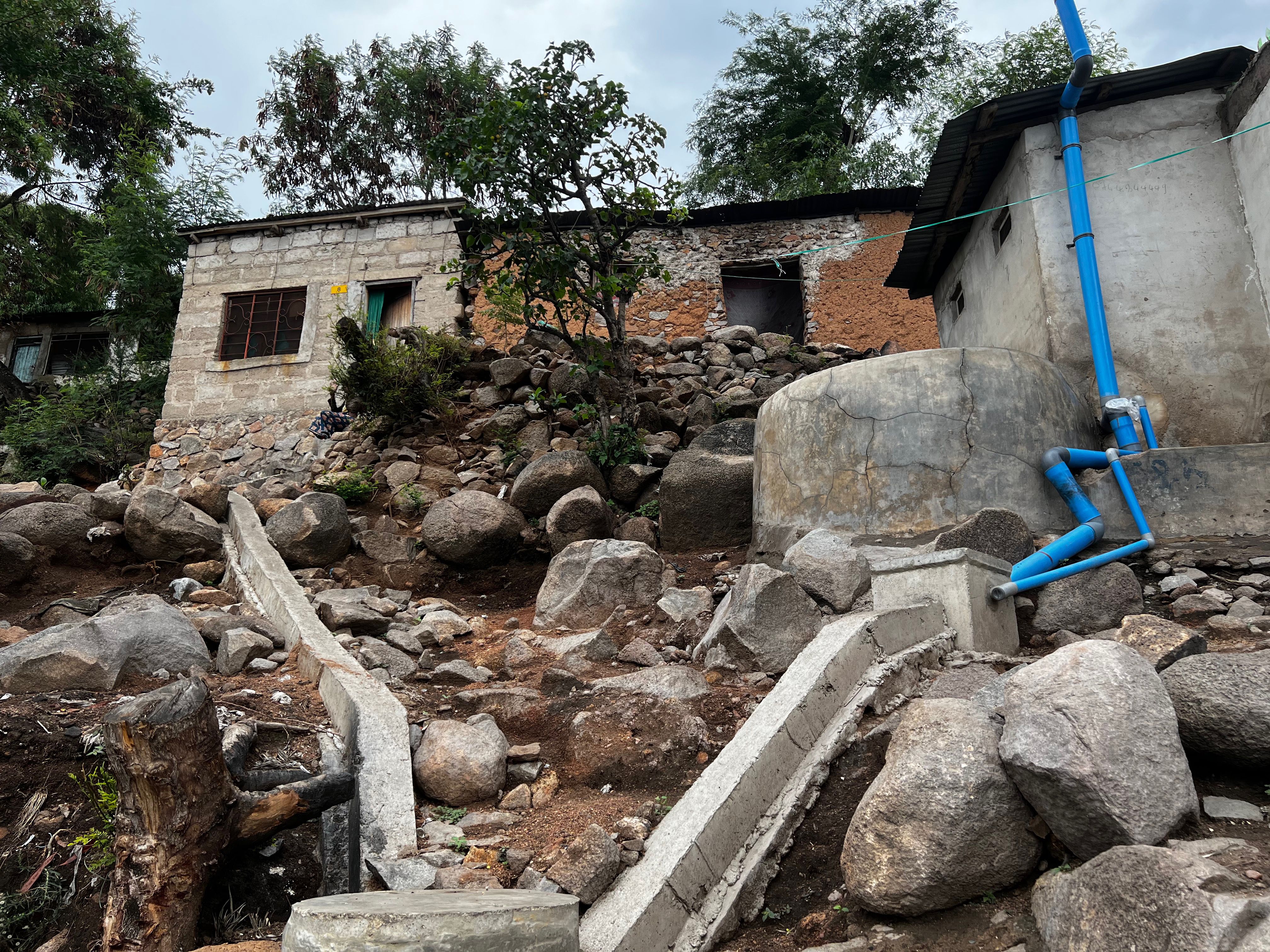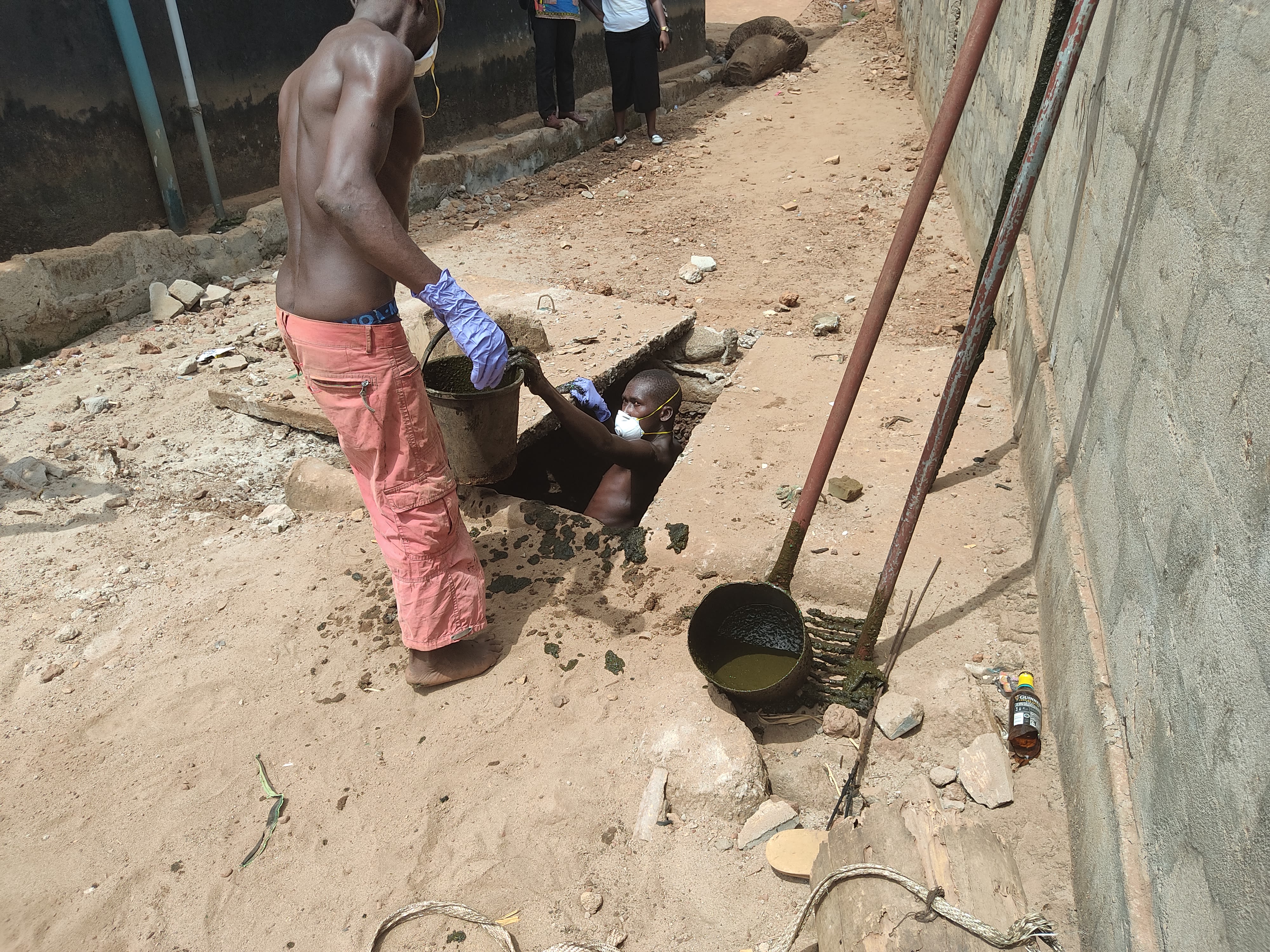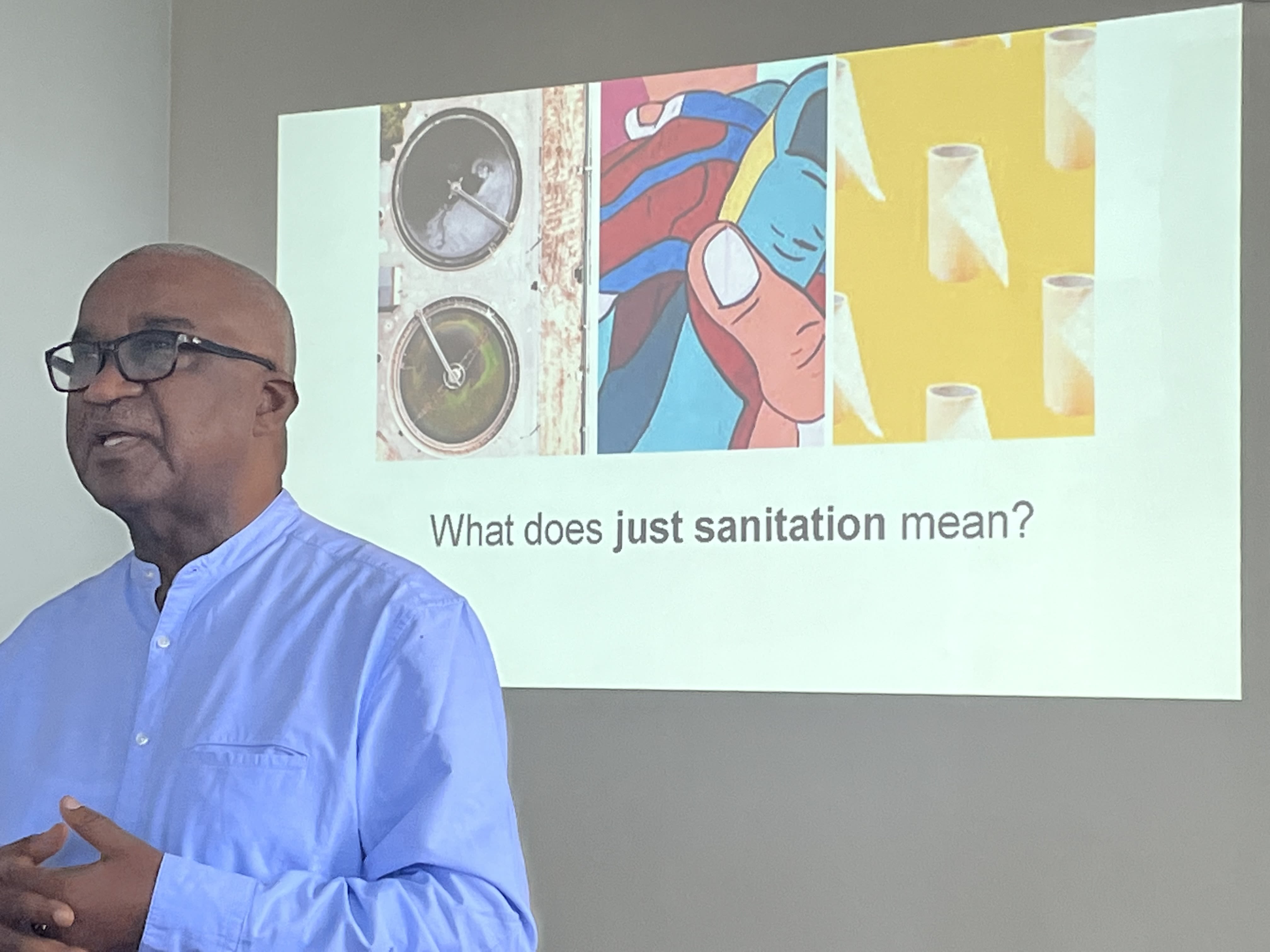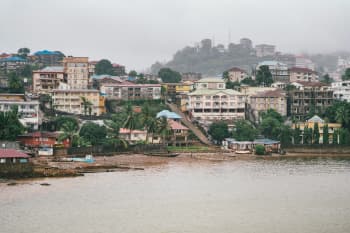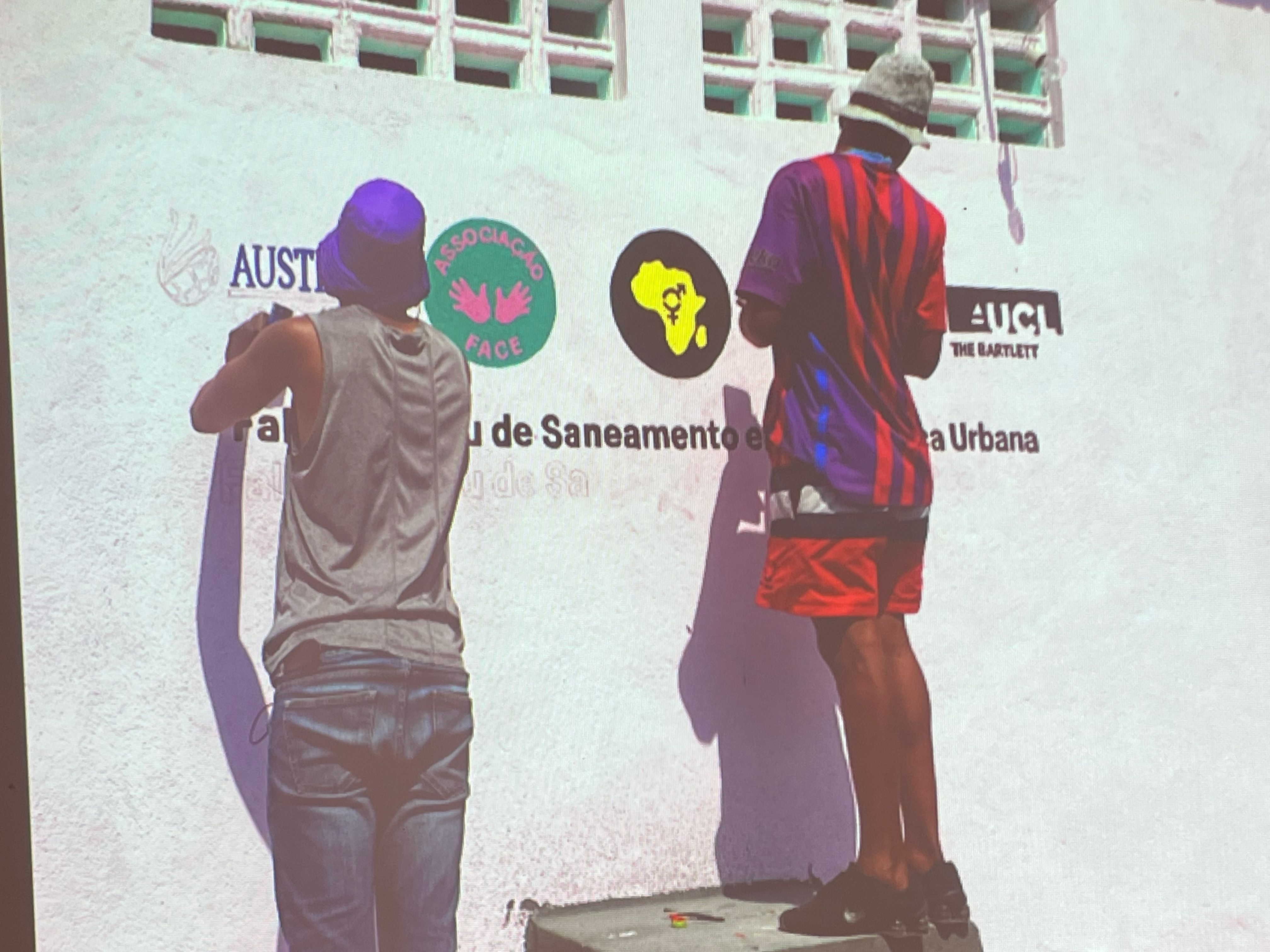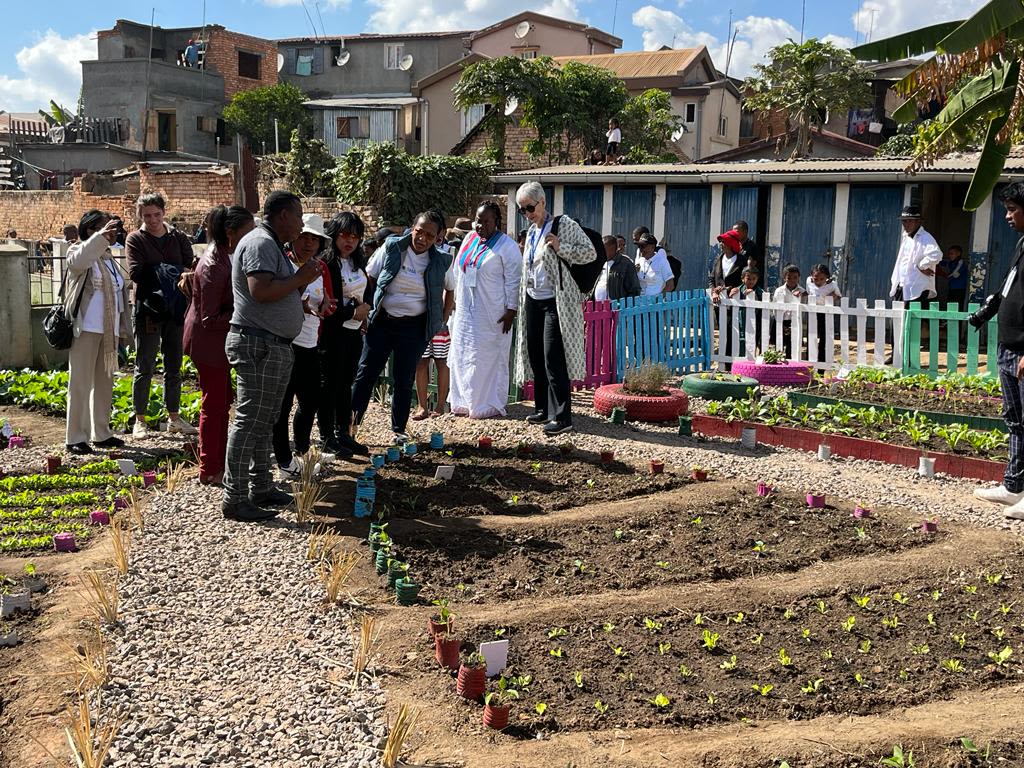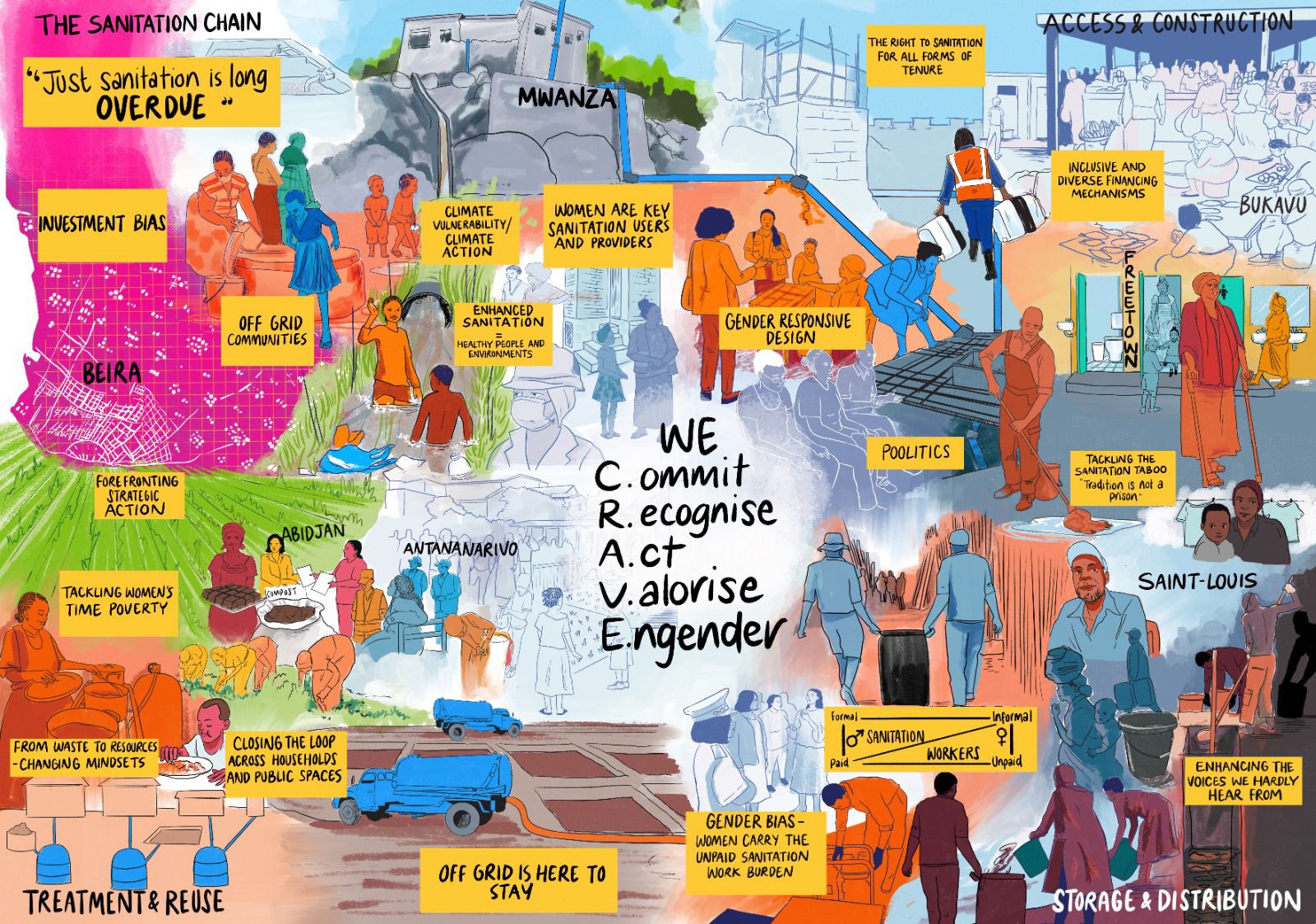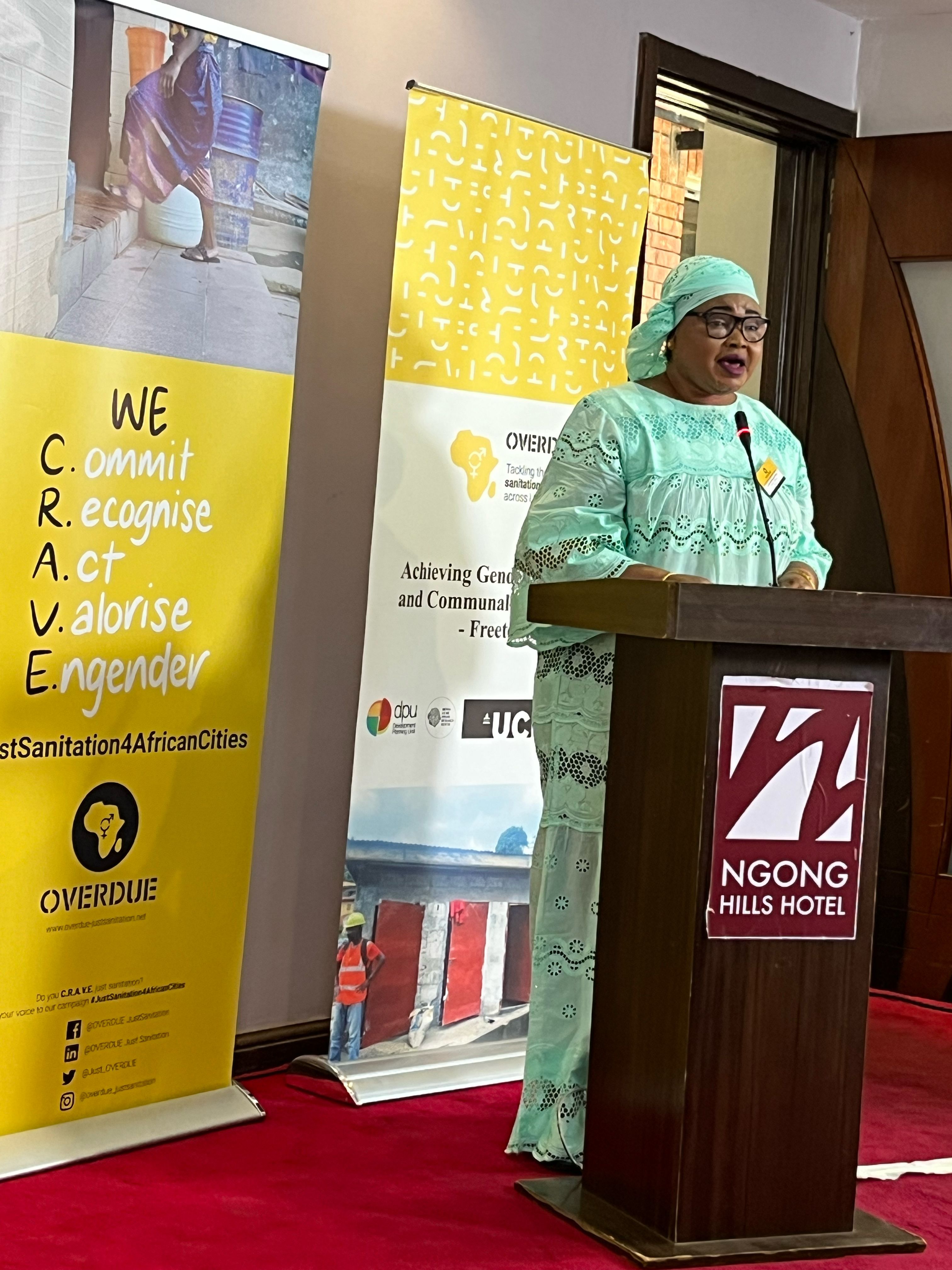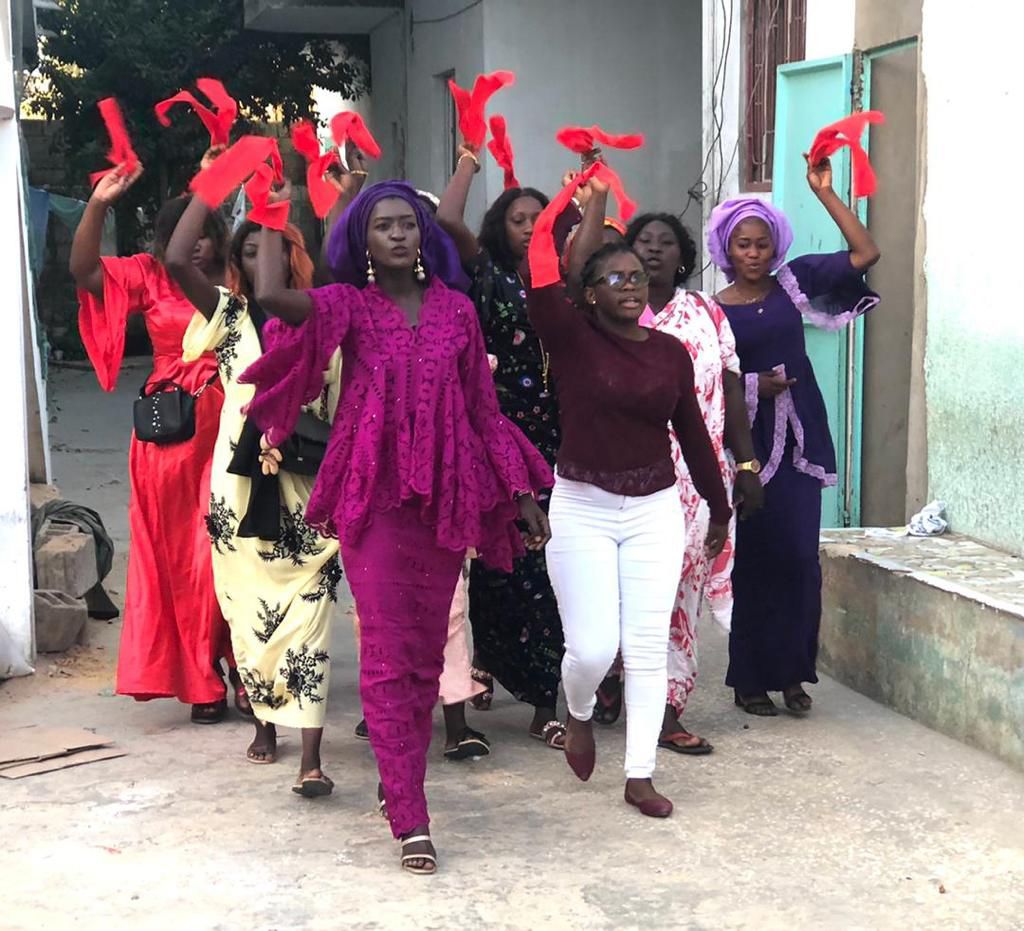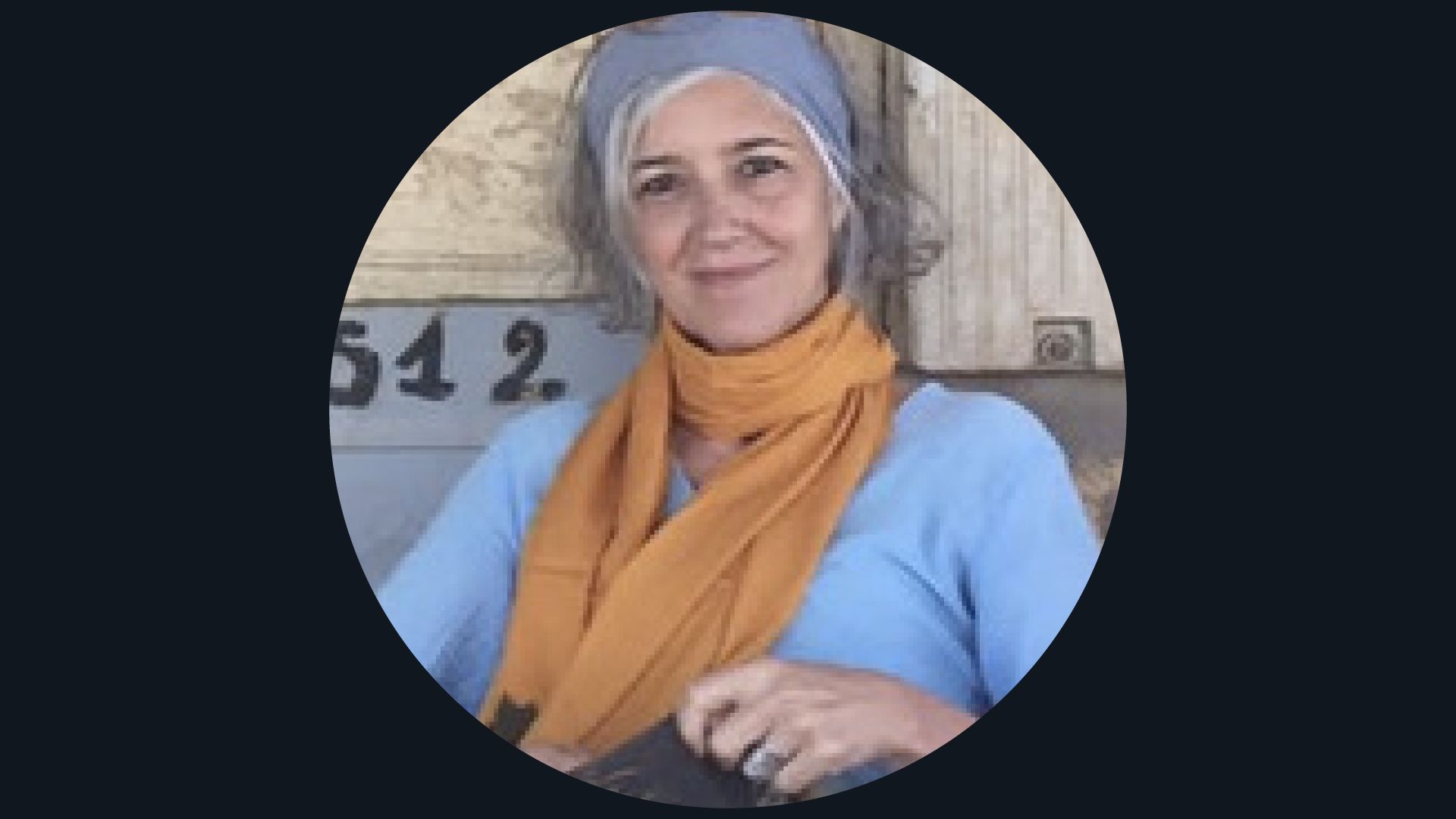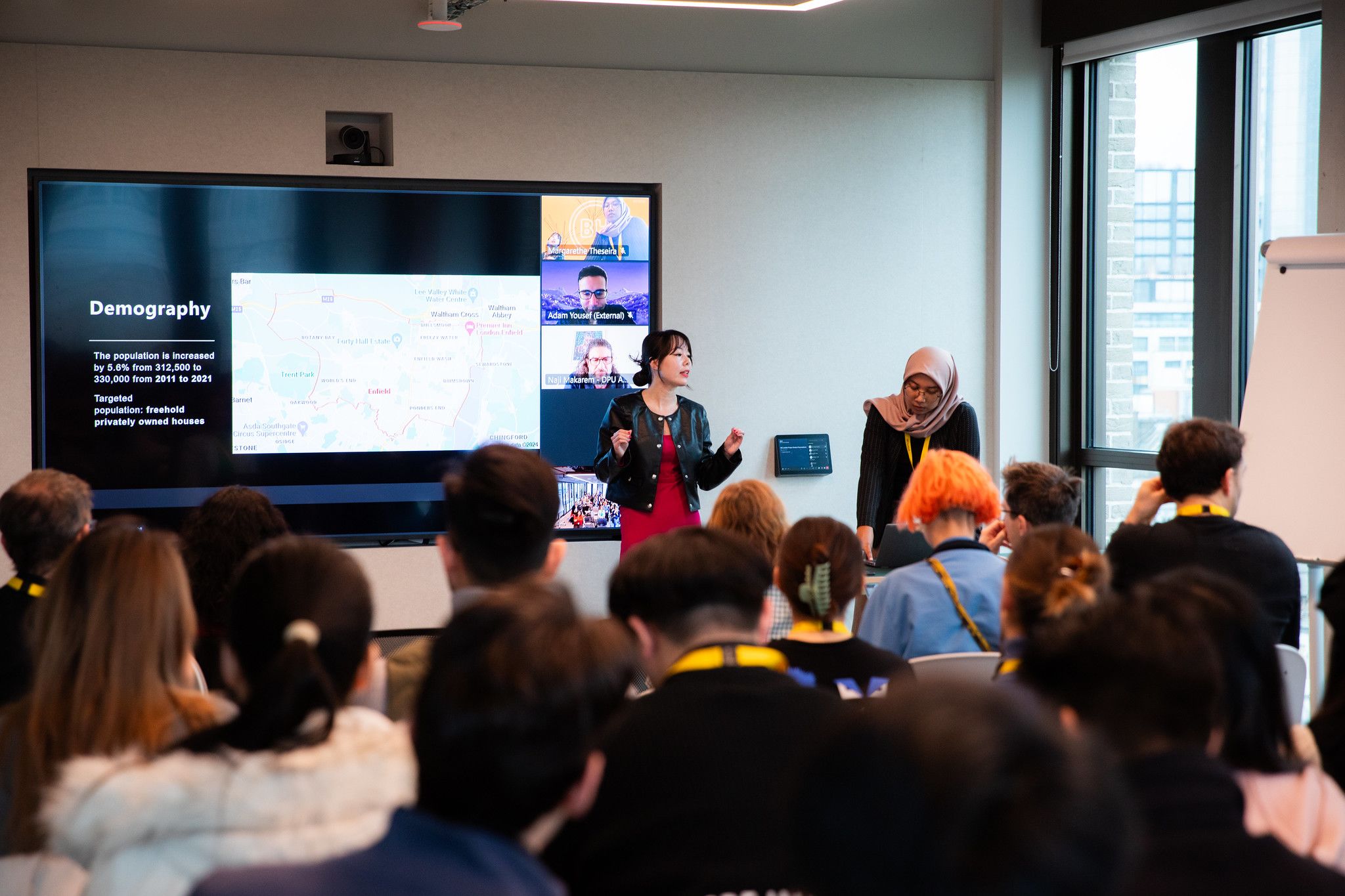Tackling Africa's urban sanitation taboo
New research is helping to understand and address long-term sanitation injustices across African cities
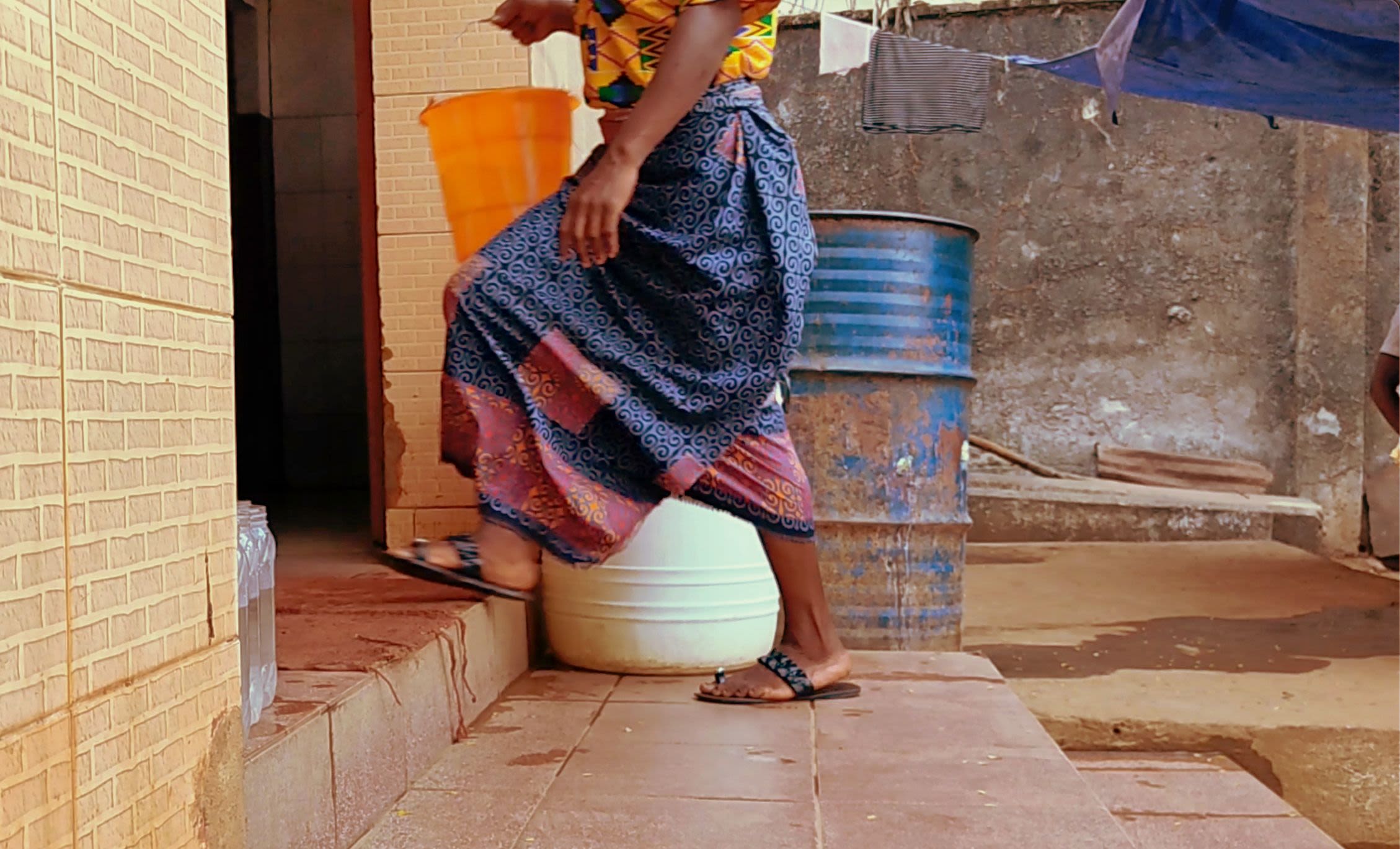
It’s difficult to tackle what is systematically made invisible.
Sanitation injustices prevailed in colonial times, and continue to grow now across urban Africa.
Today, there are persistent inequalities in most African cities. The quality of sanitation provision depends on whether you live in the ‘cement city’, where a modern grid-based system has grown from old colonial settlements, or the ‘reed city’, where more than 75% of the urban population dwell.
The OVERDUE project, led by Professor Adriana Allen at UCL's Bartlett Development Planning Unit, has been helping to unpack historical and colonial legacies and narratives that created this ongoing situation in seven cities across different African countries.
Connecting off-grid and grid facilities through the simplified sewerage system in Mwanza, Tanzania. Image credit: P. Hormann
Connecting off-grid and grid facilities through the simplified sewerage system in Mwanza, Tanzania. Image credit: P. Hormann
Adriana explains: “The terms ‘reed’ and ‘cement’ city are particular to Mozambique, but we find similar terms in many other contexts, references to the ‘cane’ and ‘concrete’ city and so on. The pattern is always the same, revealing persistent inequalities in the access to adequate sanitation experienced by most women and men, girls and boys living in low income settlements.”
“When you look at governmental and utilities plans in these places, there’s still an insistence on seeing the current sanitation situation as a ‘provisional’ development phase, while focusing the bulk of investments on grid-style ‘modern’ infrastructure. However, most of these cities are unlikely to have a major grid-based sewage system that serves their whole population in the foreseeable future.”
“That means typically that 80% of sanitation official promises and investments go to serve 20% of the population. These funding asymmetries are critical – that's where the colonial legacy still persists today.”
This bias means that low income communities are primarily left to meet their sanitation needs through off-grid latrine-based sanitation. Manual pit emptiers in these areas play a key role, enduring tough working conditions, while women and girls devote many hours of daily unpaid work, masked as care work to ensure that these sanitation facilities work.
“80% of sanitation investments go to serve 20% of the population. These funding asymmetries are critical – that's where the colonial legacy still persists today.”
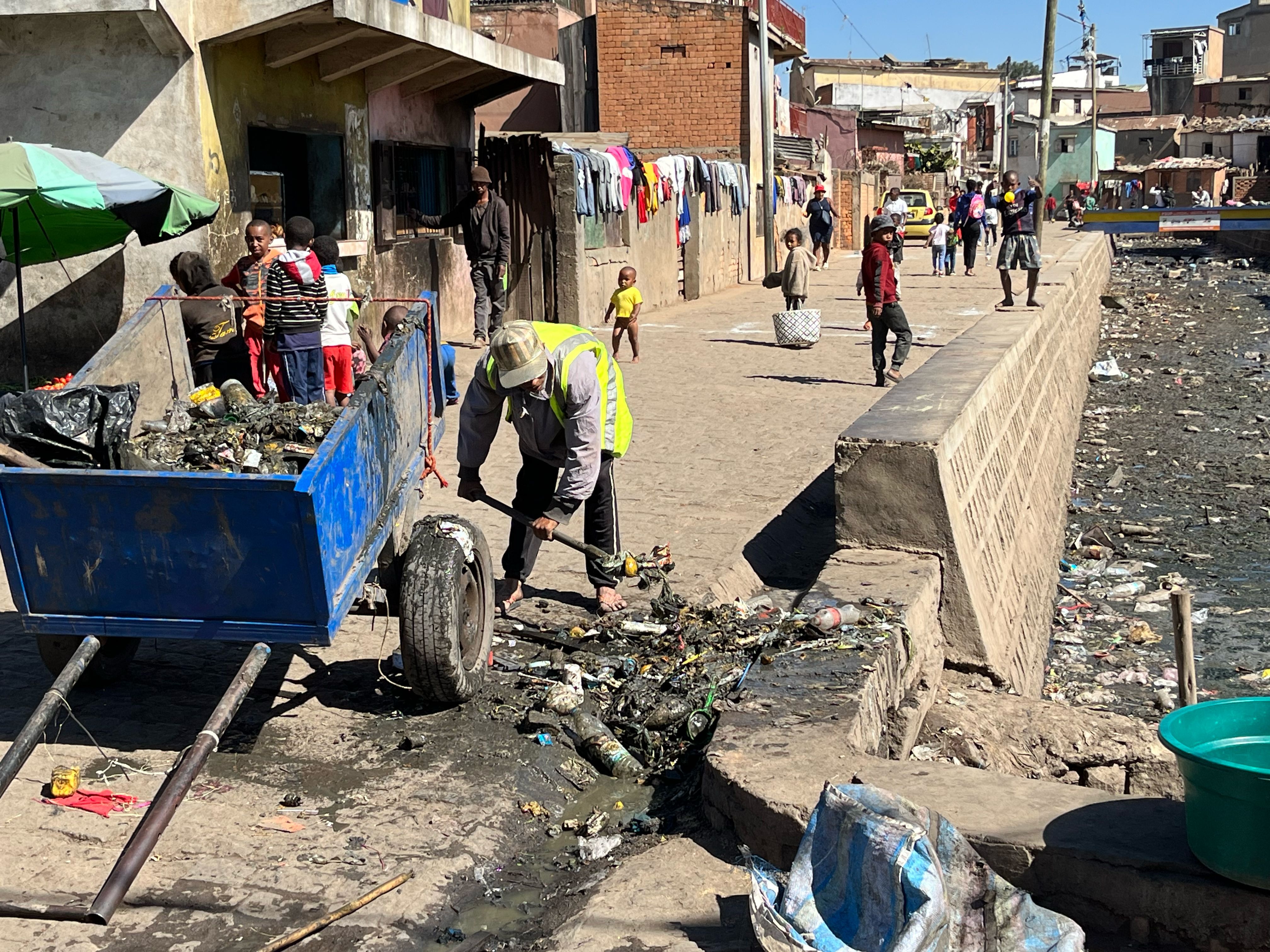
Changing the conversation, one word at a time
To create more equitable sanitation, and make sanitation taboos and injustices visible, the OVERDUE project engaged with women and men as both users and providers of sanitation infrastructure. They helped to generate insights and change reflecting their needs, experiences, practices and aspirations.
The team studied the language used to describe sanitation, and how different words and terms served to reinforce taboos. The OVERDUE project worked with different communities to create a series of glossaries highlighting linguistic reinforcement of sanitation’s deeply gendered injustices.
Terms like ‘frogman’ are used colloquially, dehumanising and stigmatising the manual latrine emptiers whose work requires them to dive into the latrines and manually remove faecal sludge, often without any basic protective equipment like gloves.
Manual pit emptiers at work in Freetown, Sierra Leone. Image credit: N. Leblond
Manual pit emptiers at work in Freetown, Sierra Leone. Image credit: N. Leblond
Discussing the meaning of sanitation related terms across local African languages. Image credit: A. Allen
Discussing the meaning of sanitation related terms across local African languages. Image credit: A. Allen
Across the cities involved in the project, these manual latrine emptiers are often forced to rely on the usage of intoxicants before, during and after their shift to help them cope with the work they do.
“We critically interrogated the different stories attached to those names and what they mean in popular language. In many cases, these terms carry a strong sense of stigma, associating those whose work sustain the sanitation lifeline across African cities with notions of dirtiness, impurity and disgust. ”
Adriana and her team stepped outside of the official narratives about sanitation, as these conversations tend to be dominated by English, French or Portuguese-speaking voices. To create the inclusive dialogue necessary to better understand the situation, the OVERDUE team worked with local interpreters who helped them engage with the sanitation users and workers in each location.
“Throughout the project, language emerged as a crucial issue. Questioning the “way to say it” also made it possible to problematise crucial sanitation issues. The production of a Wolof (the most widely spoken language in Senegal and much of West African subregion of Senegambia) sanitation glossary was critical in this respect, enabling us to link a decolonial and gender-sensitive approach to identify key terms related to sanitation, and their social and cultural roots, thus providing a deeper understanding of the role that language plays in reproducing, enforcing, and at points challenging, sanitation taboos.”
Sanitation workers as ‘heroes’
As COVID-19 restrictions rendered many planned activities impractical at the beginning of the project, OVERDUE devised new strategies to explore and highlight sanitation injustices.
“The teams across the seven cities decided that it was important to celebrate the role of those who provided a key lifeline for sustaining the cities. Different activities took place in each city. In Freetown, Sierra Leone, we organised a collective walk, taking utility and municipal authorities through spots that explain how the services differ and change throughout the whole city.”
This activity helped utilities management professionals and local government officials recognise and understand the extent of the issues.
“When you talk about off-grid sanitation workers to any of the utilities managers, previously they would just say ‘well, they shouldn’t exist.’ And that would be it. But when you’re talking about the workers that sustain the sanitation systems for more than 75% of the population, it’s not enough to say they shouldn’t exist. The more you treat them as taboo, the more you push them into undignified, unfair and unsafe working conditions.”
Celebrating off-grid sanitation workers as ‘heroes’ helped challenge stereotypes and associated stigma. It also enabled the recognition of the unpaid work done by women and girls on a daily basis in their households and communities to keep sanitation facilities clean and running.
“These people are also health workers. They do an essential job – not just during the pandemic, but on an everyday basis. Yet, their work is rendered invisible at best, and stigmatised and criminalised at worst. Formal law-based rules and regulations are biased towards “modern” grid systems. They over-regulate and exclude off-grid paid sanitation workers, making their livelihoods “undecent” (impossible, arduous, under-rewarded), and under-regulate unpaid sanitation work (predominantly performed by women and girls), thereby reinforcing their invisibility and lack of protection.”
“Calling them ‘sanitation heroes’ was a way of saying, ‘we respect and value the work they do in protecting public health and life day in and day out’, and to listen to their experiences and expectations for decent working conditions.”
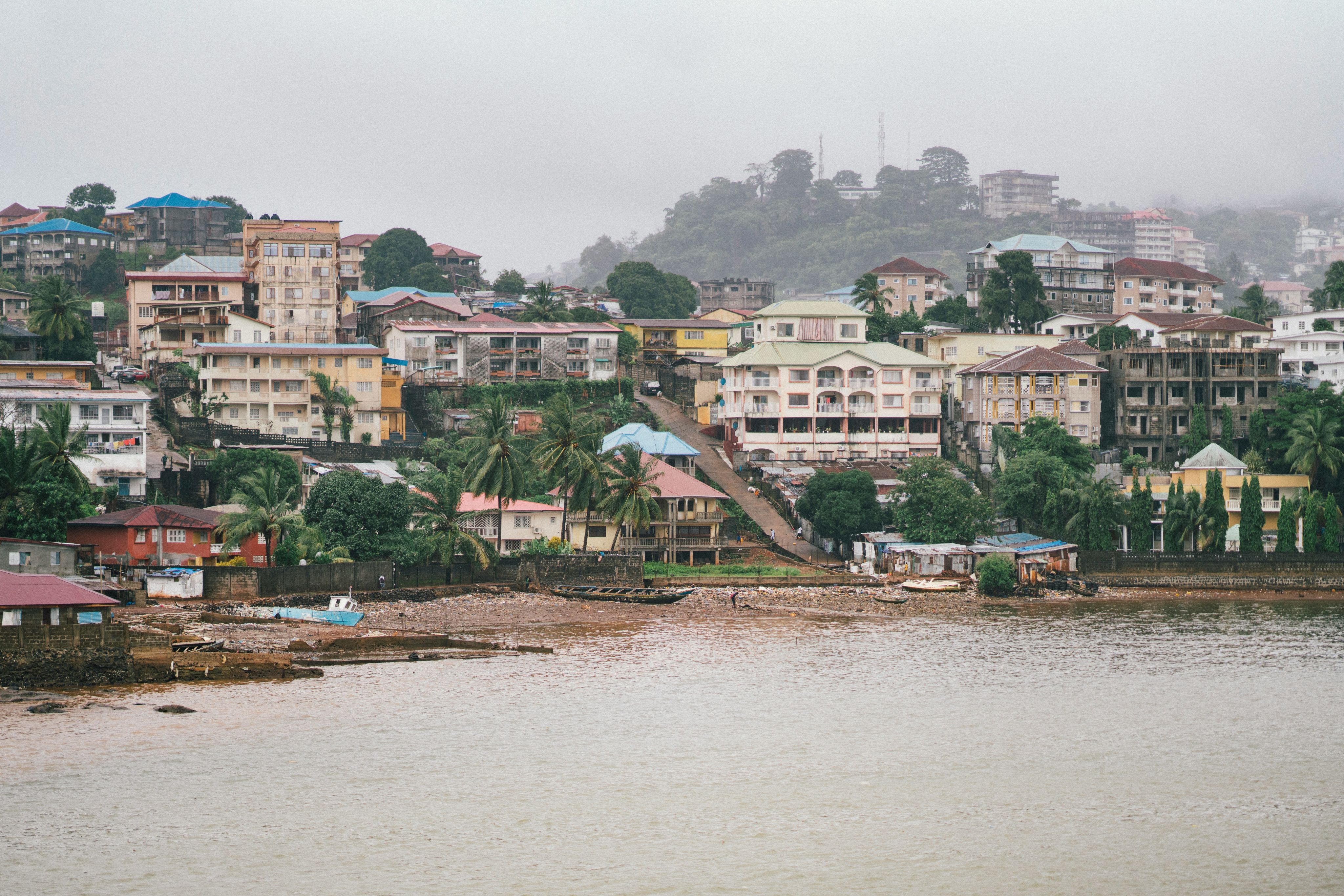
Collaborative action through research
Last but not least, a key objective of OVERDUE was to produce actionable knowledge that partner organisations could use to develop strategic interventions – finding ways to do things differently.
These approaches were built on a fresh understanding of who is holding the sanitation service chain together across African cities, and how. The actionable lessons from the project were co-developed by reevaluating situated sanitation experiences, practices and investments across the board. These ranged from large-scale infrastructural grid-expansion investments, through to incremental and ad-hoc practices (implemented both individually and collectively) as coping mechanisms by the urban poor.
A range of strategic interventions were then designed and implemented by and in the partnered cities, including biodigesters and small-scale sewage recycling projects in schools (many of which can be explored via the OVERDUE website).
Gender-sensitive toilet rehabilitation in Beira, Mozambique. Image credit: H. Domingues
Gender-sensitive toilet rehabilitation in Beira, Mozambique. Image credit: H. Domingues
By applying a gendered perspective, the OVERDUE project was able to better address intersecting inequalities that often leave female sanitation users and providers at even greater disadvantages.
Public toilet rehabilitation offered considerable opportunities for improving sanitation experiences for many people – especially women and girls.
“Some of the cities opted for rehabilitating public toilets from a gender perspective. This was important because a very large percentage of women and girls rely on public toilets in transport hubs and markets or on communal toilets in the neighbourhoods where they live.”
"These public toilets are typically dilapidated. Across countries which are highly dependent on external aid, we’ve found a vicious cycle of ‘build/neglect/rebuild’ – an NGO comes in, builds public or communal toilet blocks and a few years later they’re completely unusable, often becoming sites of open defecation.”
“As we targeted public and communal toilet rehabilitation, it was crucial to engage with gender sensitive design. We asked questions about different blocks for women and men. Should there be particular facilities for children and disabled people? Who should manage these toilets, how should the fees for that be paid? Who should be in charged of their management?”
Turning faecal sludge into food and energy at the Antanjombe Nord Public Primary School (EPP) in Antananarivo, Madagascar. Image credit: A. Allen
Turning faecal sludge into food and energy at the Antanjombe Nord Public Primary School (EPP) in Antananarivo, Madagascar. Image credit: A. Allen
Facing taboos and changing mindsets
Many of the sanitation problems facing Africans in off-grid urban locations are partly a result of the idea that these arrangements are a temporary, unfortunate deviation from modern Western ideals of sanitation.
Adriana sees this misunderstanding as a symptom of a wider mindset problem that reaches far beyond Africa.
“This is a transplanted notion...the idea that somehow the same sort of sanitary revolution that took place in countries like the UK will eventually deliver universal adequate sanitation across urban Africa.”
“When you look at that sanitation revolution – ensuring the flow of faecal matter away from our bodies into a distant elsewhere – this idea of ‘flushing away’ has been achieved in very unsustainable ways, even in the context of the UK. Faecal sludge is seen as something to be pushed away, carrying disease – rather than a nutrient-rich resource we can recycle into biogas or compost. The paradigm of water and capital-intensive solutions is in many ways unsustainable and unattainable.”
Engendering the full sanitation service chain. Image credit: A. Jusic. Poster design: N. Coetze
Engendering the full sanitation service chain. Image credit: A. Jusic. Poster design: N. Coetze
Advancing feminist sanitation justice
Though OVERDUE’s funding ended in September 2023, their legacy is tangible – through the seven cities where strategic interventions were built using their research, to the partnerships and the advocacy campaign WE C.R.A.V.E Just Sanitation for African Cities, created across more than 25 African cities between local and national governments, international agencies and sanitation workers and local communities.
Adriana credits the success of the project to the feminist perspective and methods used by the team to pick apart the complex taboos and attitudes surrounding sanitation injustices in each location.
“Infrastructure is typically seen as a physical and technical complex of things: pipes, toilets, treatment plants and so on. But infrastructure also encompasses the norms, techniques, practices, legal tools and social relations that underpin a society. Decisions about infrastructure don’t just affect the built environment – infrastructure also regulates bodies, behaviours, nature and people’s rights.
“Within the big sanitation taboo, there are multiple smaller taboos that impact women and girls disproportionally. Across the seven cities where we worked, we encountered numerous testimonies of how control over women’s bodily fluids extends to the disgust they face, if they make noise or produce smell, as they release themselves, or when menstruating.
“Eliciting open conversations about sanitation taboos revealed the power to activate a process of conscientisation, breaking the feeling that what is happening to their bodies is an isolated or natural experience. The journey from the individual to the collective experience is critical to resist and contest all forms of domination and violence, not just those that are recognised by others.”
For those relying on off-grid systems, deeply engrained gender inequalities are produced and reproduced through every step of the sanitation service chain.
“Adopting an intersectional feminist perspective was critical to understand that sanitation-related taboos are not just reinforced through patriarchal norms but also through infrastaructural plans and investments that conceal actual sanitation systems that mark the difference between illness or health, poverty or prosperity, suffering or well-being, stigma or respect for the bulk of ordinary citizens.”
“Decisions about infrastructure don’t just affect the built environment – they also regulate bodies, behaviours, nature and people’s rights.”
The President of the Network of Locally Elected Women of Africa (REFELA) opening the WE CRAVE regional meeting in Nairobi. Image credit: A. Allen
The President of the Network of Locally Elected Women of Africa (REFELA) opening the WE CRAVE regional meeting in Nairobi. Image credit: A. Allen
The uprising of invisible women workers, Street Théatre by OGDS. Image credit: P. Diouf
The uprising of invisible women workers, Street Théatre by OGDS. Image credit: P. Diouf
About the author
Professor Adriana Allen
Professor of Development Planning and Urban Sustainability, The Bartlett Development Planning Unit, University College London
Originally trained as an urban planner in Argentina, Adriana specialises in the fields of feminist political ecology and planning, with a focus on poor and impoverished women and men.
Learn more about development planning
UCL's Bartlett Development Planning Unit offers a range of master's and PhD degrees training future leaders in international development and urban planning with the skills to work towards socially just and sustainable development in the global south.
Story produced by All Things Words
© UCL The Bartlett 2024


